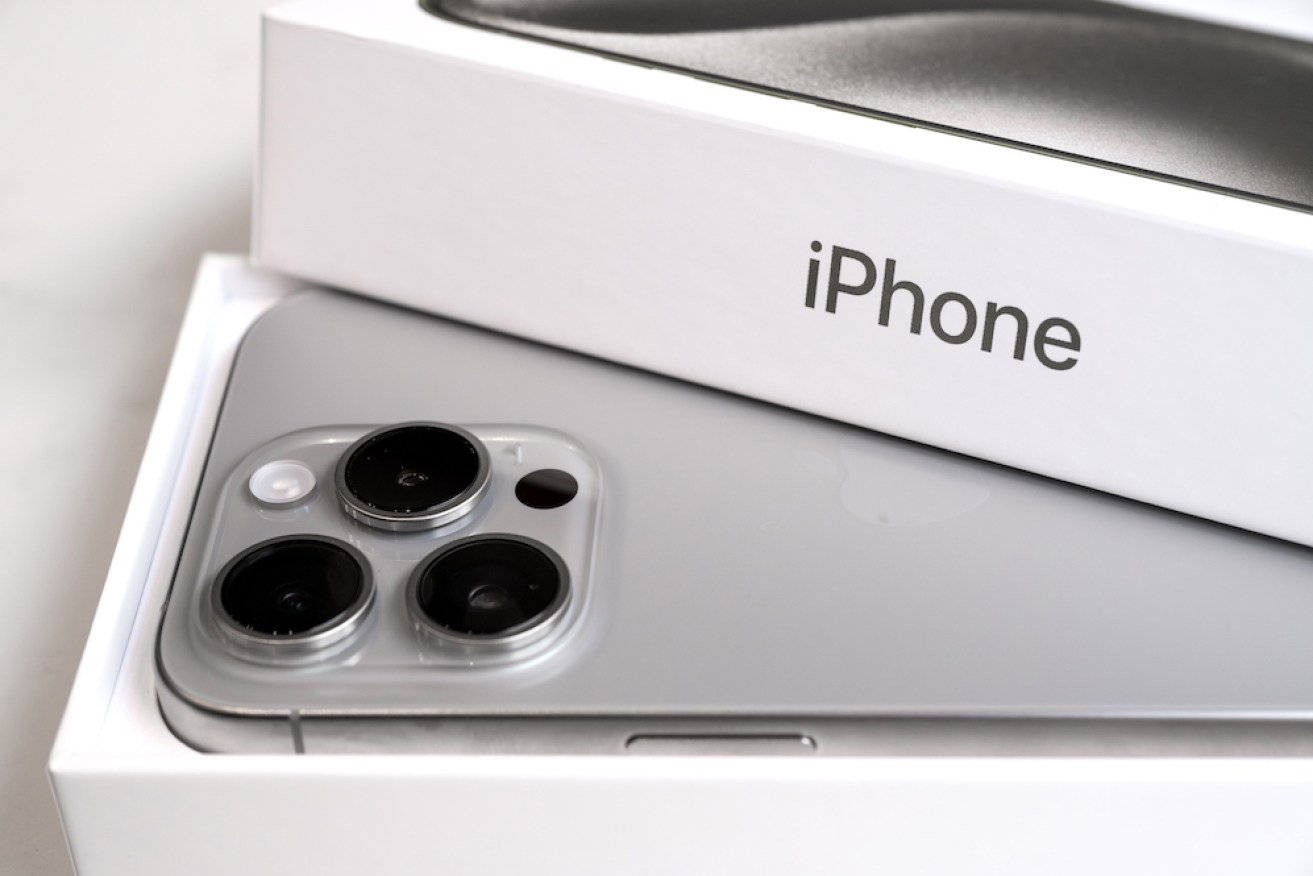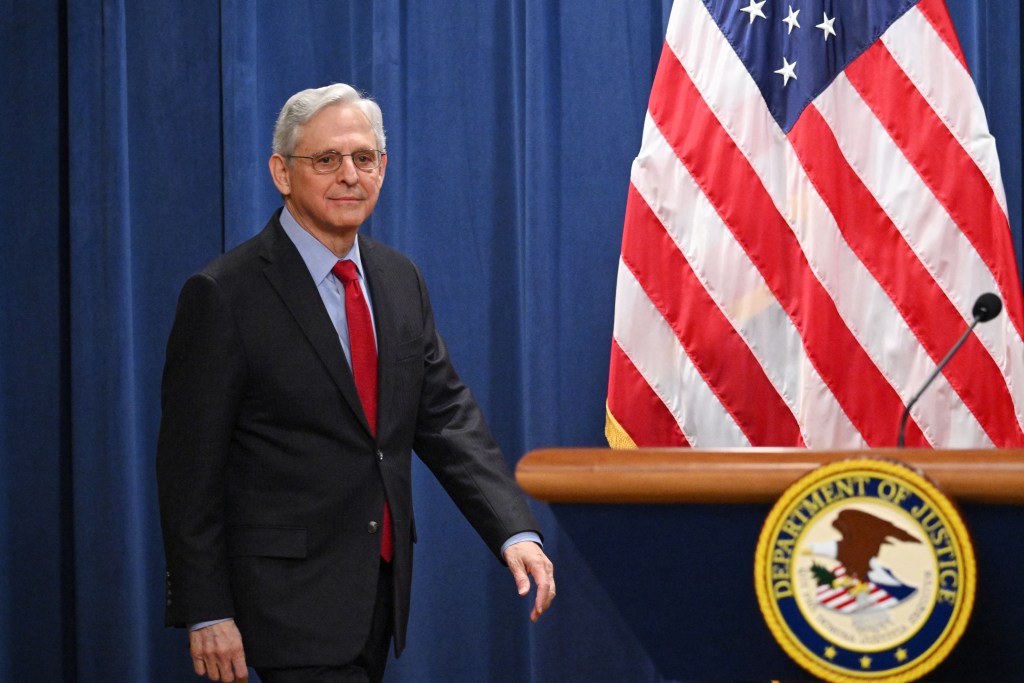US push to end Apple’s ‘smartphone monopoly’


US lawmakers have sued Apple. Photo: Getty
The US Department of Justice has Apple’s “smartphone monopoly” in its sights.
The Justice Department and 15 other states in the US have sued Apple, alleging the company drove up prices for its services, in turn hurting smaller rivals by leveraging demand for its product.
“Consumers should not have to pay higher prices because companies violate the antitrust laws,” Attorney-General Merrick Garland said.
“If left unchallenged, Apple will only continue to strengthen its smartphone monopoly.”
Dating back to its time as a marginal player in the personal computer market, Apple’s business model has long been based on charging users a premium for technology products where Apple dictates nearly all of the details of how the device works and can be used.
The Justice Department now wants to unwind Apple’s business model and force it to give users more choices around how apps can tap into the hardware Apple designs.
The lawsuit alleges Apple uses its market power to get more money from consumers, developers, content creators, artists, publishers, small businesses and merchants.

The Department of Justice launched an antitrust lawsuit against Apple. Photo: Getty
Why go after Apple?
Apple is the latest tech company US regulators have sued under both Donald Trump and Joe Biden’s administrations. Alphabet’s Google, Meta Platforms and Amazon have also been in the firing line.
The lawsuit against Apple was filed in the US federal court in Newark, New Jersey.
The 88-page document said it is focused on “freeing smartphone markets from Apple’s anti-competitive and exclusionary conduct and restoring competition to lower smartphone prices for consumers, reducing fees for developers, and preserving innovation for the future”.
The lawsuit pointed to five examples where the company used tools to suppress technologies that increased competitions, like “super apps”, cloud stream game apps, messaging apps, smartwatches and digital wallets.
It was also alleged Apple made it difficult for competing messaging apps to work smoothly on iPhones and its app store has hurt competition, thanks to policies around streaming services for games.
Apple has always brushed off complaints of anti-competitive behaviour and following the landmark lawsuit, it issued a statement.
“This lawsuit threatens who we are and the principles that set Apple products apart in fiercely competitive markets,” Apple stated.
“If successful, it would hinder our ability to create the kind of technology people expect from Apple, where hardware, software and services intersect.”
It’s likely going to be years before there is any sort of outcome.
The Los Angeles Times reported that analysts anticipate the tech behemoth changing to some extent.
The Los Angeles Times also revealed a note to clients from the managing director of Wedbush Securities, Daniel Ives.
“We do not expect any business model changes for now, but Apple clearly is going to have to find a way to eventually settle this case, pay a hefty fine, and ultimately find some compromise with developers on the app store structure down the road,” Ives said.
Impact on consumers
In Europe, Japan and South Korea, Apple has already been subject to antitrust probes and lawsuits from corporate rivals, like Epic Games.
The company’s app store, which charges developers commissions of up to 30 per cent, survived a legal challenge brought by Epic Games.
A recent decision from the European Commission saw Apple hit with a $3 billion antitrust fine for preventing Spotify and other music streaming services from informing users of payment options outside its app store.
To align with new laws in the EU, Apple announced a number of changes to its app store to comply with the Digital Services Act.
One of the changes meant Apple users didn’t have to use the app store to download apps, and it was suggested the laws in Europe could pave the way for Australian lawmakers to do the same thing.
In the past the ACCC has said there needs to be new competition laws in response to the expansion of companies such as Amazon, Apple, Google, Meta and Microsoft.








